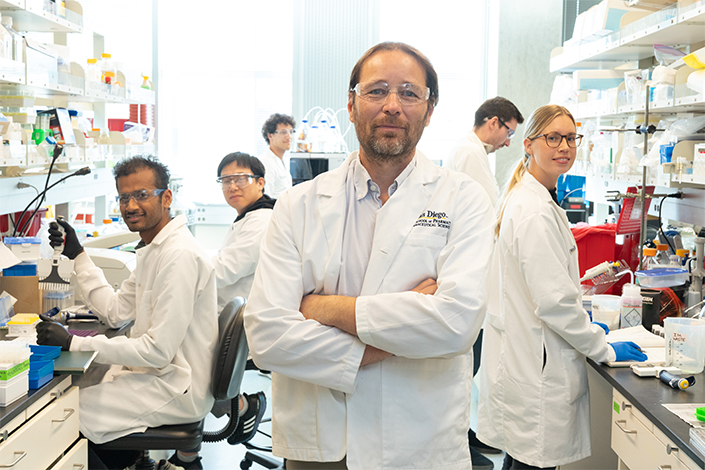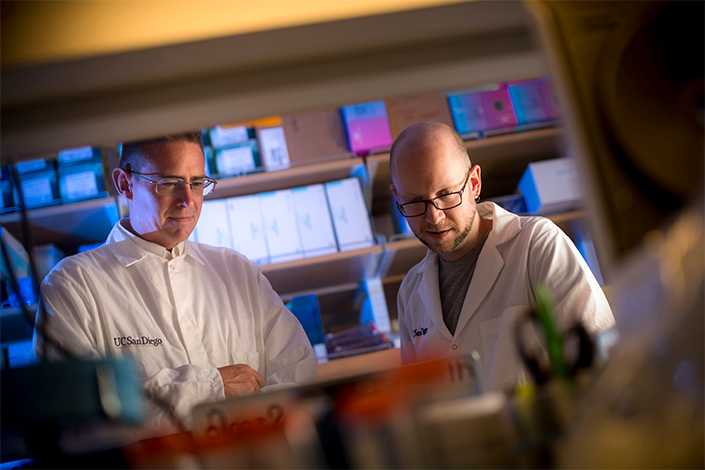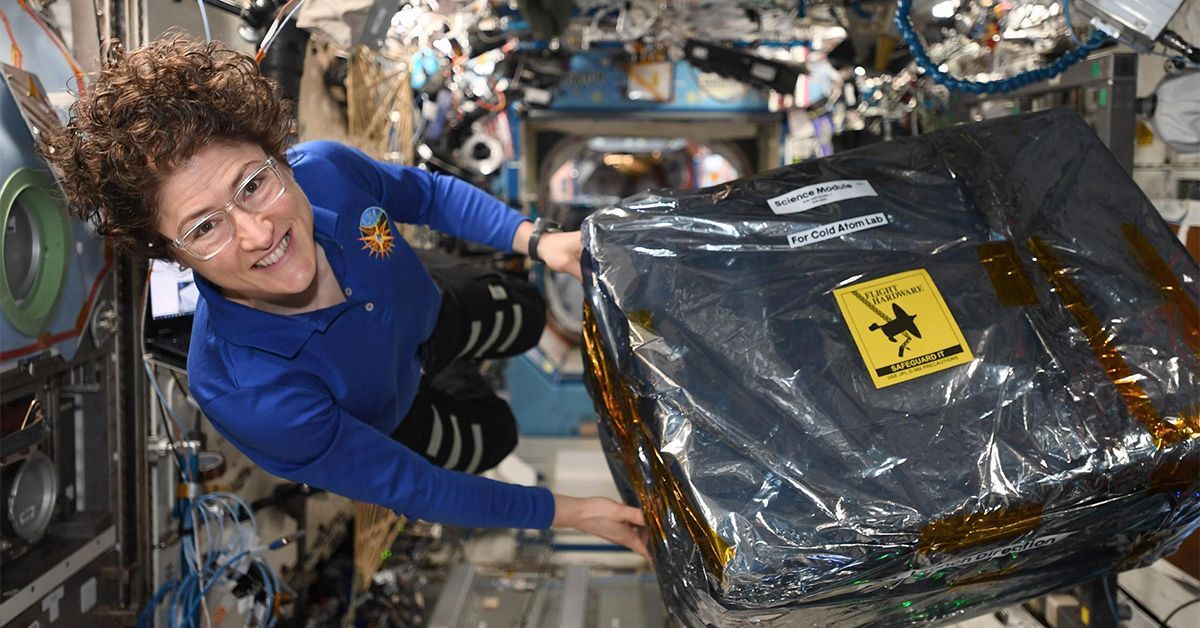Sending Microbes to Space Could Improve Astronaut Health
UC San Diego researchers have created a map of the microbes aboard the International Space Station; results could make space exploration safer and improve the health and safety of people in ultra-clean environments on Earth.
Published Date
Story by:
Topics covered:
Share This:
Article Content
Though most of us will never step foot onto a spaceship, space travel has had a deep impact on human life and society, particularly when it comes to health and medicine. Because low-gravity conditions cause dramatic changes in our cells and tissues, space exploration allows scientists to conduct biomedical experiments that are impossible on Earth, which has enabled the discovery of new drugs, inspired the development of new medical devices, and helped us better understand aging and other biological processes.
However, these experiments require astronauts to run them, and the human body is not designed to live on a space station. Astronauts often experience a variety of health problems while in space, including immune dysfunction, skin rashes and other inflammatory conditions. If not properly managed, these types of health issues can result in more human error and reduced length of space missions, ultimately reducing the quantity and quality of the experiments on board and slowing the pace of scientific progress.

Now, research from UC San Diego has helped shed light on what causes health issues in astronauts and what could be done to make them healthier. The findings, published in the journal Cell, could help empower the next generation of space-based research and also have implications for the health and safety of people in sterile environments here on Earth.
The researchers collaborated with astronauts who swabbed 803 different surfaces on the International Space Station (ISS)—around 100 times more samples than have been taken in previous surveys. Back on Earth, the researchers identified which bacterial species and chemicals were present in each sample. Then, they created three-dimensional maps illustrating where each was found on the ISS and how the bacteria and chemicals might be interacting.

“It’s possible the extremely sterile environment of the ISS may not be healthy in the long term for astronauts, who could benefit from interactions with more Earth-like microbes while in space,” said co-corresponding author Pieter Dorrestein, Ph.D., a professor in the Skaggs School of Pharmacy and Pharmaceutical Sciences at UC San Diego and a 2024 Highly Cited Researcher. “In addition to the ISS, there are many other places on Earth where microbe levels are kept low for extended periods of time, such as hospitals or submarines, where we may need to diversify the microbial environment.”
When they compared the ISS to different human-built environments on Earth, the researchers found that the ISS microbial communities were less diverse than most of the samples from Earth. The ISS samples were more similar to samples from industrialized, isolated environments, such as hospitals and closed habitats, and homes in urbanized areas.
Compared to most of the Earth samples, the ISS surfaces were lacking in free-living environmental microbes that are usually found in soil and water. Most of the microbes they found on ISS were associated with human skin.
Because exposure to a wide variety of bacteria in various settings can help boost the immune system, the researchers hypothesize that astronauts may develop inflammatory conditions because their immune system is insufficiently challenged in space. However, this also suggests that astronauts’ health could benefit from intentionally introducing more microbial diversity to the space station.
The researchers compare this suggestion to the well-studied beneficial impacts of gardening on the immune system.
“There’s a big difference between exposure to healthy soil from gardening versus stewing in our own filth, which is kind of what happens if we're in a strictly enclosed environment with no ongoing input of those healthy sources of microbes from the outside,” says co-corresponding author Rob Knight, Ph.D., who was recently named the 2025 Scientist of the Year by the Achievement Rewards for College Students (ARCS) Foundation San Diego chapter and is also a 2024 Highly Cited Researcher.
In the future, the researchers hope to refine their analyses to be able to detect potentially pathogenic microbes and signals of human health from environmental metabolites. They say that these methods could also help improve the health of people living and working in similarly sterile environments on Earth, such as hospitals or submarines.
This story was adapted from a press release published by Cell Press.
You May Also Like
Stay in the Know
Keep up with all the latest from UC San Diego. Subscribe to the newsletter today.






